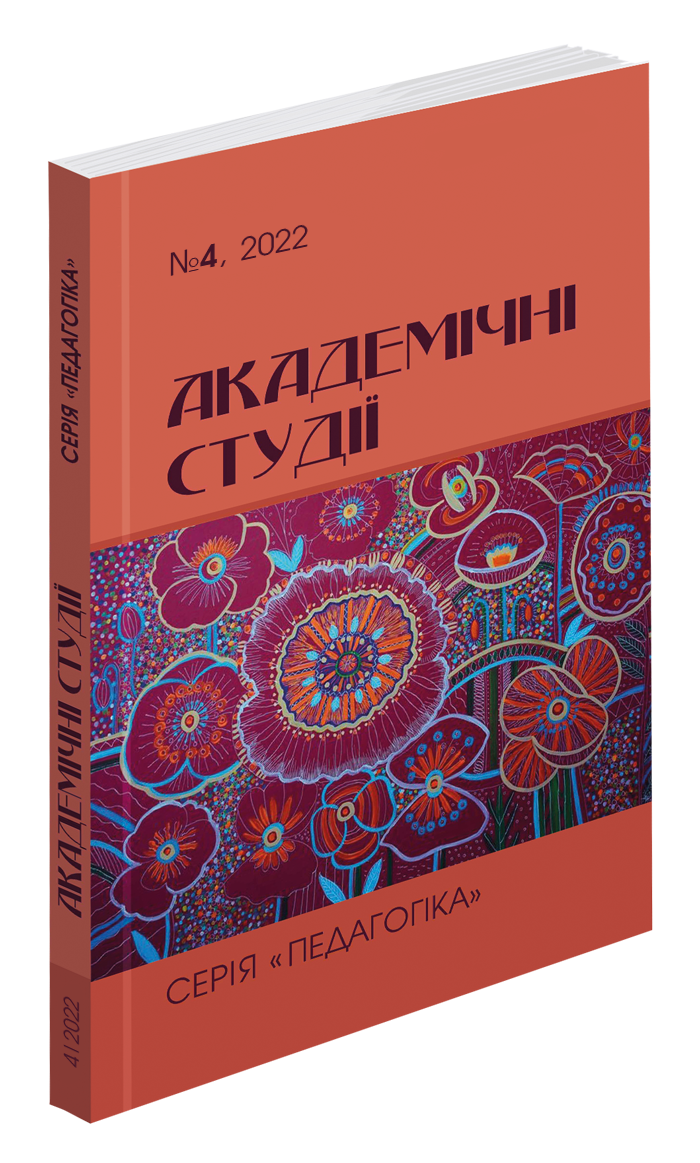Abstract
The article examines and analyzes the most significant priorities of learning to play the piano for a future music teacher. Emphasis is placed on the importance of playing the piano in the professional training of a future musician. The relevance of the research topic is determined by the strict requirements of society for the training of a highly qualified teacher of the new Ukrainian school. Methodological principles of the selected aspect of study are based on psychological and pedagogical foundations and principles of specialist training, as modern education is transformed from knowledge-oriented to practice-oriented. The essential methodological basis of the research is the reliance on science-based activity, person-oriented and competency-based approaches in the training of an education specialist. The novelty of the research lies in the fact that the polyfunctionality of the influence of learning to play the piano in the professional training of a future teacher has been revealed. Emphasis is placed on the interrelationship of psychologicalpedagogical and special-musical aspects of the professional training of a future specialist and the role of learning to play the piano in this process. On the basis of the analysis of the scientific fund and the experience of working on the specified problem, the key parameters of changes in learning to play the piano in connection with the evolution of technical capabilities, performance requirements, and interpretation of music are singled out. It has been found out that learning to play the piano for a future music teacher is focused not only on the improvement of performance skills, but also on the education of the individual, on the formation of musical and aesthetic competence. In general, the emphasis is on the potential possibilities of learning to play the piano in aesthetic education. Undoubtedly, a piano teacher must successfully implement both didactic and educational functions, since learning to play the piano has a multifunctional effect in the professional training of a future teacher. The article draws balanced conclusions about the importance of playing the piano in the professional training of a music teacher and aesthetic education. Prospects for further research are outlined.
References
Барановська С. Структура музичної самоосвіти майбутнього вчителя. Збірник наукових праць. Серія «Педагогіка». Кам’янець-Подільський національний університет. Кам’янець-Подільський, 2008. С. 205–207.
Павленко О. Зміст і структура музично-естетичних орієнтацій. Проблеми педагогічних технологій. Вип. 1. Луцьк, 2002. С. 77–82. 3. Попович А. Педагогічні особливості формування естетичної культури молодших школярів. Збірник наукових праць. Серія «Педагогіка».Кам’янець-Подільський національний університет. Кам’янець-Подільський, 2008. С. 233–236.
Ростовський О. Я. Професійна підготовка майбутніх учителів музики: проблеми і перспективи. Наукові записки.Серія «Педагогіка». № 2. Тернопільський державний педагогічний університет. Тернопіль, 2001. С. 15–22.
Сухомлинський В. О. Вибрані твори в 5 т. Т. 3. Народження громадянина. Київ : Радянська школа, 1977. С. 203–508.

